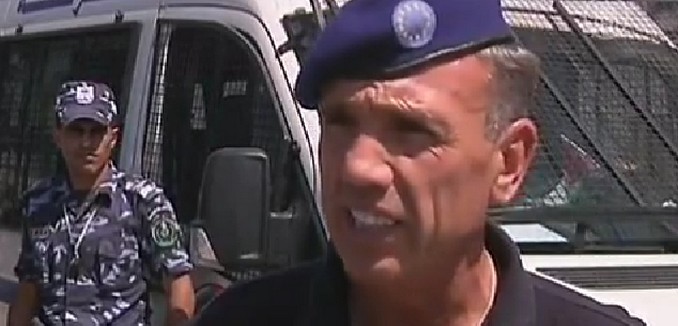The Palestinian Authority decided on Sunday to continue its security cooperation with Israel, inflaming tensions between Fatah and its rivals Hamas and Islamic Jihad, both of which demand a stop to the coordination.
The decision was made despite calls to halt security ties with Israel following the death of Palestinian official Ziad Abu Ein last week. Abu Ein collapsed and died of a heart attack following a confrontation with Israeli forces in the West Bank.
Following this decision, Hamas accused the Palestinian Authority of being unable to lead the Palestinian people, calling the continued coordination with Israel “treason in the blood of the martyrs.” (Arabic link) Hamas official Mohammed Faraj al-Ghul said that this decision only encourages killing of more Palestinians by Israel, as recently happened in the case of Ziad Abu Ein (Arabic link).
A key factor of the security coordination is that it allows the IDF to arrest Hamas and Islamic Jihad operatives in the West Bank, greatly reducing the threat to Palestinian leader Mahmoud Abbas and his Fatah party. Hamas, which came to power in Gaza in 2007 when it staged a violent military coup and seized power from Abbas’ Fatah party, has not hidden its desire to take over the West Bank. In August, Israel’s internal security organization, Shin Bet, announced that it had foiled a plot by Hamas to stage a coup against Fatah in the West Bank.
Hamas said the Palestinian reaction to the death of Abu Ein should be a halt to security coordination and an armed struggle against Israel, Al-Sharq Al-Awsat reported (Arabic link).
Palestinian officials defended the continuation of security coordination. Abbas advisor Muhammad al-Habash said security cooperation, which began following the Oslo Accords, will not end as long as it advances Palestinian interests. In addition to protecting Fatah from Hamas, supporters of the coordination believe that its cancellation will negatively impact the assistance that Israel provides Palestinians in the social and medical spheres.
Despite the decision to continue security cooperation, the PA also decided to submit a unilateral draft resolution tomorrow to the UN Security Council, setting a deadline for Israeli withdrawal from West Bank and East Jerusalem.
Israeli officials estimate that if the Palestinians demand a vote on the resolution by the end of December, they won’t have the necessary majority (nine out of the 15 member states) to pass the resolution, and in such a case the Americans won’t need to veto the decision. But if the vote is held after January 1, it’s likely the Palestinians can reach the necessary majority, putting the Americans in a dilemma of whether or not to use their veto power.
Israeli officials said the Palestinian move was a provocation meant to increase pressure on the Americans and to embarrass them over an expected American veto of the proposal.
France, Britain and Germany are working on an alternate proposal, which the Palestinians said they were willing to consider if an agreement is reached on its wording by Wednesday.
[Photo: NTDTV / YouTube ]




